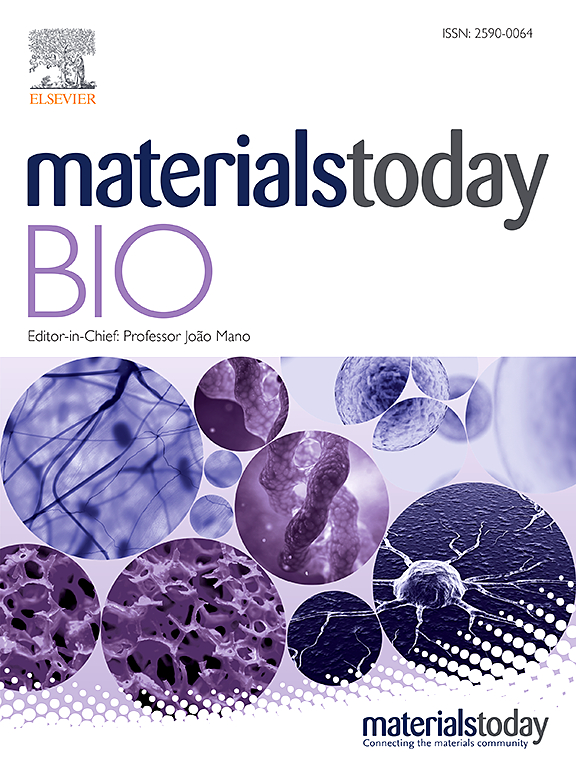Dual-drug loaded chondroitin sulfate embolization beads enhance TACE therapy for HCC by integrating embolization, chemotherapy, and anti-angiogenesis
IF 8.7
1区 医学
Q1 ENGINEERING, BIOMEDICAL
引用次数: 0
Abstract
Hepatocellular carcinoma (HCC) is a major public health threat due to its high incidence and mortality rates. Transcatheter arterial chemoembolization (TACE), the primary treatment for intermediate-to-advanced hepatocellular carcinoma (HCC), commonly utilizes embolic agents loaded with anthracycline-based cytotoxic drugs. Post-TACE, the hypoxic microenvironment in the tumor induced by embolization stimulates the formation of new blood vessels, potentially leading to revascularization and diminishing TACE's efficacy. In clinical practice, combined therapy for liver cancer using TACE and oral targeted drugs often encounters the limitation that targeted drugs cannot efficiently reach the tumor site following TACE. We have developed chondroitin sulfate microspheres (CMs) capable of encapsulating both the cytotoxic drug idarubicin (Ida) and the vascular inhibitor Lenvatinib (Len), thereby achieving a triple therapeutic effect on liver cancer: embolic starvation, drug toxicity, and efficient inhibition of neovascularization.

求助全文
约1分钟内获得全文
求助全文
来源期刊

Materials Today Bio
Multiple-
CiteScore
8.30
自引率
4.90%
发文量
303
审稿时长
30 days
期刊介绍:
Materials Today Bio is a multidisciplinary journal that specializes in the intersection between biology and materials science, chemistry, physics, engineering, and medicine. It covers various aspects such as the design and assembly of new structures, their interaction with biological systems, functionalization, bioimaging, therapies, and diagnostics in healthcare. The journal aims to showcase the most significant advancements and discoveries in this field. As part of the Materials Today family, Materials Today Bio provides rigorous peer review, quick decision-making, and high visibility for authors. It is indexed in Scopus, PubMed Central, Emerging Sources, Citation Index (ESCI), and Directory of Open Access Journals (DOAJ).
 求助内容:
求助内容: 应助结果提醒方式:
应助结果提醒方式:


